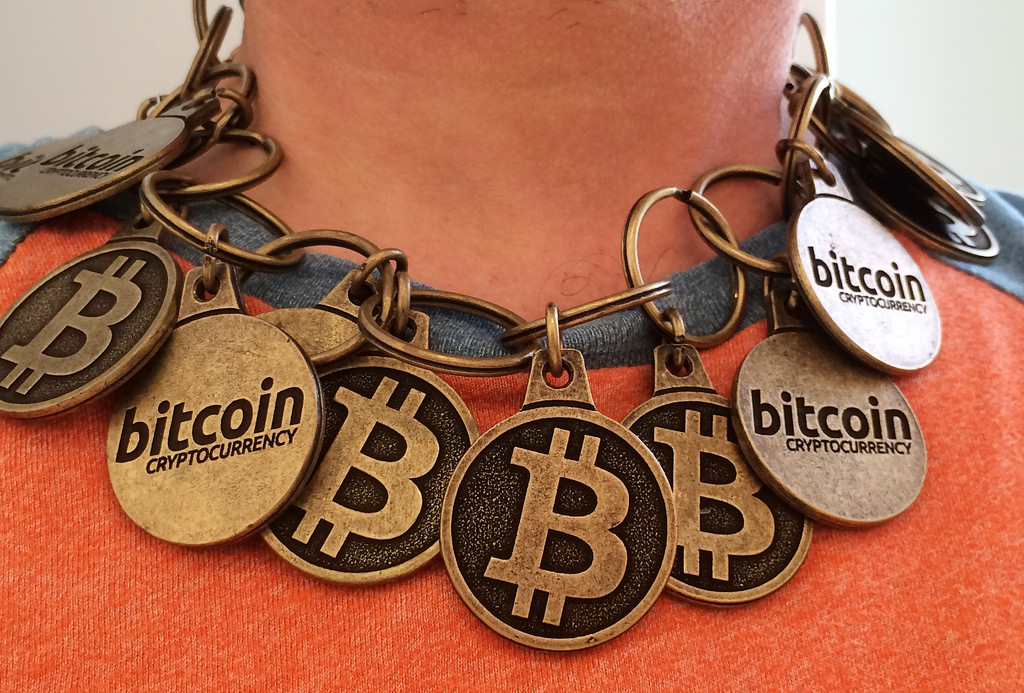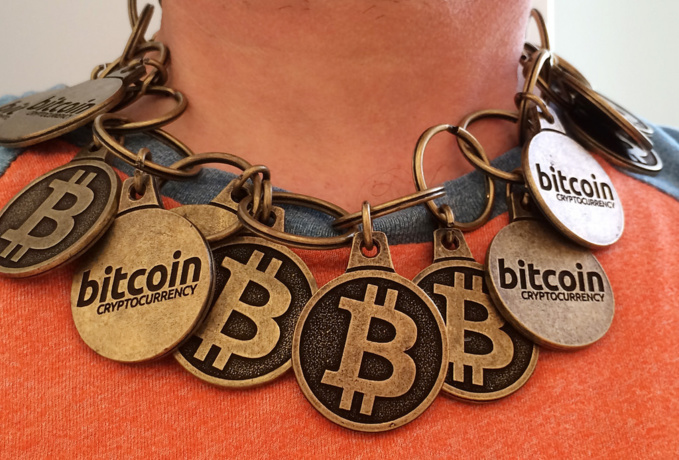ICO is the primary offering of tokens, an important step in development of all crypto-currency projects. In fact, it's kind of crowdfunding: people and companies invest in a new digital asset long before it actually enters the market. However, often it all ends at the ICO stage.
The first problems appear at the very moment when it is necessary to decide how much money will be needed. Exchange rate of crypto-currencies - especially with respect to each other - is constantly changing, and the amount of financing can be very difficult to determine. Accordingly, if ICO-carrying developers accept payments in crypto-currencies, they always take risks. Volatility of crypto-currency exceeds volatility of almost any other asset on the market, and conditional $ 20 million collected during an ICO can easily turn into $ 5 million or $ 50 million due to the course jumps.
The name of Vitalik Buterin is known to everyone who works with crypto-currencies: he is one of the founders of Ethereum and one of the most high-tech entrepreneurs of recent years. Nevertheless, one of the loudest failures happened precisely with his project DAO. $ 165 million was raised during an ICO of a decentralized venture fund for Ethereum start-ups, of which $ 60 million were later stolen.
The unprecedented hacking attack became possible due to a code error: the hacker stole 3.64 million coins. Moreover: an open letter appeared on the Internet over time. The hacker, while remaining anonymous and not acknowledging his guilt, pointed out that he simply took advantage of an "undocumented function that allows obtaining additional coins." As a result, promising DAO died at the start, and in order to return the holders their money, Vitalik Buterin had to create the Ethereum Classic.
This case is not unique: for example, during the ICO TokenCard one of the participants was able to buy 15% of the total issue volume - about 6.2 million TKN tokens - at a price 10 times lower than it was exposed for other investors. An error in the Zerocoin code cost its creators 370,000 Zcoin tokens. Unfortunately, there are many such stories.
Crypto-currencies are a very young market, and the legislative bodies are working slowly. Established and proven methods of control simply do not work in the field of crypto-currency: in fact, no one supervise ICO results. There is no watchdog, there are no requirements for transparent reporting, and there is no independent audit. Most of the projects do not even publish public accounting records, and when amount collected during an ICO neither confirms nor reveals anything.
Naturally, many ICO initiators are tempted in this situation. If no one controls movement of money, what prevents you from messing around with crypto-currency issuance, and spend already collected funds for personal purposes? The situation was analyzed by Satis Group LLC. The company chose ICOs that collected at least $ 50 million, followed their evolution and came to an incredible conclusion: only 8% of tokens reach listing on exchanges, and 82% are "scam" (garbage projects with no real product). Of course, some percent of such projects fail unintentionally because of hackers, mistakes in development and so on, but there are plenty of garbage on the market.
For example, PlexCorps collected $ 15 million in 2017, without even planning launch of the project. It was similar with with Benebit, Opair, Ebitz, BioLifeChain, Puyin, ACChain. On average, fraudulent ICOs collect $ 1-15 million, which is an insignificant sum for the crypto-currency world. However, the overall losses are impressive: for example, $ 68 million were lost through scam only in August 2018. The total damage for 2017 was almost $ 225 million.
Another popular disease of many ICO even with absolutely honest developers is failure to meet deadlines. It happens like this: an ICO was carried out successfully, but there is no clear understanding of how to effectively spend it. A successful ICO makes you feel dizzy: rejoicing at its success, the team takes everything at once. Own exchange, own purse, own fund... But in the end it turns out that the project has run out of money, and the product has not been released. In this case, if the developers initially concentrated on only one - the most important - part of the project, everything would be in order.
Tezos blockchain project collapsed for the same reason: having collected $ 232 million during the ICO, the team promised to begin development in December 2017, but then deadline was shifted to February 2018. Investors' confidence in the project began to fall, and the token’s rate to Bitcoin collapsed. The company overcame the difficulties: the XTZ listing took place in July 2018, but its value dropped by 74% from the starting point in four days. Later the situation gradually began to level off, the platform began to develop, and on September 17 the project came out of the beta test. But the pace of development could be much higher if Tezos carefully planned their development.
All the listed problems arise for the same reason: ICO is often organized by young and talented entrepreneurs who are well versed in how to do crypto currency, but have practically no experience in managing money and staff in protecting against possible risks.
Even one competent manager would help avoid all the difficulties: he would propose an optimal model for raising funds, immediately budget all the necessary expenses, create a transparent and understandable system of control over finance. Development of crypto currency should be managed by professionals, but they literally cannot be given direct access to money.
source: forbes.com
The first problems appear at the very moment when it is necessary to decide how much money will be needed. Exchange rate of crypto-currencies - especially with respect to each other - is constantly changing, and the amount of financing can be very difficult to determine. Accordingly, if ICO-carrying developers accept payments in crypto-currencies, they always take risks. Volatility of crypto-currency exceeds volatility of almost any other asset on the market, and conditional $ 20 million collected during an ICO can easily turn into $ 5 million or $ 50 million due to the course jumps.
The name of Vitalik Buterin is known to everyone who works with crypto-currencies: he is one of the founders of Ethereum and one of the most high-tech entrepreneurs of recent years. Nevertheless, one of the loudest failures happened precisely with his project DAO. $ 165 million was raised during an ICO of a decentralized venture fund for Ethereum start-ups, of which $ 60 million were later stolen.
The unprecedented hacking attack became possible due to a code error: the hacker stole 3.64 million coins. Moreover: an open letter appeared on the Internet over time. The hacker, while remaining anonymous and not acknowledging his guilt, pointed out that he simply took advantage of an "undocumented function that allows obtaining additional coins." As a result, promising DAO died at the start, and in order to return the holders their money, Vitalik Buterin had to create the Ethereum Classic.
This case is not unique: for example, during the ICO TokenCard one of the participants was able to buy 15% of the total issue volume - about 6.2 million TKN tokens - at a price 10 times lower than it was exposed for other investors. An error in the Zerocoin code cost its creators 370,000 Zcoin tokens. Unfortunately, there are many such stories.
Crypto-currencies are a very young market, and the legislative bodies are working slowly. Established and proven methods of control simply do not work in the field of crypto-currency: in fact, no one supervise ICO results. There is no watchdog, there are no requirements for transparent reporting, and there is no independent audit. Most of the projects do not even publish public accounting records, and when amount collected during an ICO neither confirms nor reveals anything.
Naturally, many ICO initiators are tempted in this situation. If no one controls movement of money, what prevents you from messing around with crypto-currency issuance, and spend already collected funds for personal purposes? The situation was analyzed by Satis Group LLC. The company chose ICOs that collected at least $ 50 million, followed their evolution and came to an incredible conclusion: only 8% of tokens reach listing on exchanges, and 82% are "scam" (garbage projects with no real product). Of course, some percent of such projects fail unintentionally because of hackers, mistakes in development and so on, but there are plenty of garbage on the market.
For example, PlexCorps collected $ 15 million in 2017, without even planning launch of the project. It was similar with with Benebit, Opair, Ebitz, BioLifeChain, Puyin, ACChain. On average, fraudulent ICOs collect $ 1-15 million, which is an insignificant sum for the crypto-currency world. However, the overall losses are impressive: for example, $ 68 million were lost through scam only in August 2018. The total damage for 2017 was almost $ 225 million.
Another popular disease of many ICO even with absolutely honest developers is failure to meet deadlines. It happens like this: an ICO was carried out successfully, but there is no clear understanding of how to effectively spend it. A successful ICO makes you feel dizzy: rejoicing at its success, the team takes everything at once. Own exchange, own purse, own fund... But in the end it turns out that the project has run out of money, and the product has not been released. In this case, if the developers initially concentrated on only one - the most important - part of the project, everything would be in order.
Tezos blockchain project collapsed for the same reason: having collected $ 232 million during the ICO, the team promised to begin development in December 2017, but then deadline was shifted to February 2018. Investors' confidence in the project began to fall, and the token’s rate to Bitcoin collapsed. The company overcame the difficulties: the XTZ listing took place in July 2018, but its value dropped by 74% from the starting point in four days. Later the situation gradually began to level off, the platform began to develop, and on September 17 the project came out of the beta test. But the pace of development could be much higher if Tezos carefully planned their development.
All the listed problems arise for the same reason: ICO is often organized by young and talented entrepreneurs who are well versed in how to do crypto currency, but have practically no experience in managing money and staff in protecting against possible risks.
Even one competent manager would help avoid all the difficulties: he would propose an optimal model for raising funds, immediately budget all the necessary expenses, create a transparent and understandable system of control over finance. Development of crypto currency should be managed by professionals, but they literally cannot be given direct access to money.
source: forbes.com



















